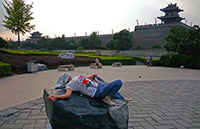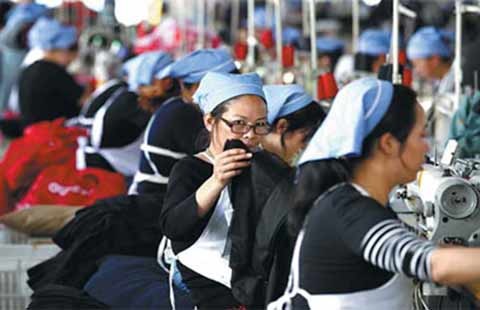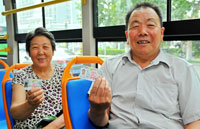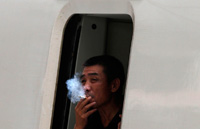Former president of hospital in Yunnan stands trial for corruption
By Li Yingqing In Kunming And Zhang Yi In Beijing (China Daily) Updated: 2016-08-19 07:55
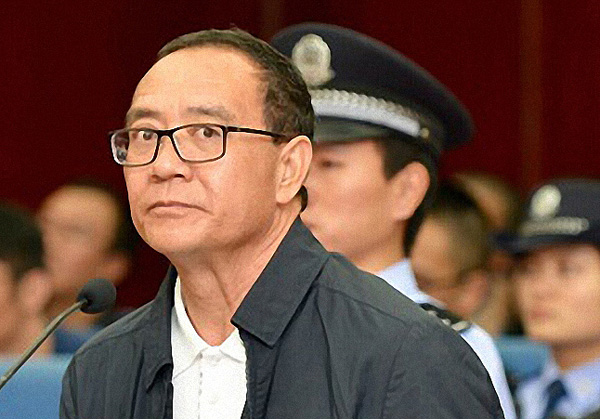 |
|
Wang Tianchao, former head of No 1 People's Hospital in Yunnan province. [File photo] |
A former president of a prominent hospital in Yunnan province stood trial on Thursday, accused of accepting 116 million yuan ($17.5 million) of bribes in property and $80,000 in cash.
Wang Tianchao, 59, former head of No 1 People's Hospital in the province, was also charged with misusing his power in infrastructure construction at the hospital, procurement of medical facilities and job promotions from 2004 to 2014. The case was heard in Pu'er Intermediate People's Court heard.
The trial ended on Thursday. A verdict will be announced later.
Wang's case caught the public's attention as it involved major healthcare corruption. People from various sectors, including media, local legislators and local political advisers attended the trial.
Wang was known as the "double hundred" hospital president because he was said to have accepted bribes in large amounts, including 100 apartments and 100 parking lots. He was placed under investigation in 2014.
During the trial, he was charged with 15 counts of corruption, including accepting 100 apartments from a real estate developer in Kunhuayuan residential building in Kunming.
A former nurse at the hospital, surnamed Li, said the discovery of Wang's corrupt behavior has ruined the reputation of the hospital.
"How to make money for himself is at the top of Wang's mind. How can such a person be qualified to be the head of the hospital?" she said.
Healthcare staff, especially doctors, wield great power not only in medical treatment but also in drug prescriptions, and collusion between drug companies and doctors in promoting drug sales remains a problem in China.
The National Health and Family Planning Commission launched a crackdown on corruption in the public health sector in February last year and announced that it will look into 41 hospitals in the next three years.
In a plan rolled out by the commission, each of these hospitals is required to set up a whistle-blower mailbox for clients to file complaints about the misconduct of medical staff. The commission pledged to spend at least five days to check the performance of each hospital.
Liu Yong, director of the commission's division overseeing the country's hospitals, said: "The investigations will cover a wide range of issues, including the pharmaceutical business relating to hospitals, kickbacks in purchasing medicines by hospitals and misconduct in procurement."
The medical performance of doctors will be a key area in the inspections, Liu said.
- Nation's next generation of missiles to be highly flexible
- Organ harvesting rumors slammed
- International trade corridor tested
- China's organ donation cases rise 45 percent in H1 of 2016
- Li urges top advisers to rely on broad vision
- China to strengthen regulation on real estate agencies
- Beijing garrison gets a new commander
- Diplomats vow progress on code of conduct
- Volunteers help fellow expats stay within law
- Heart disease rising; lifestyle shift blamed



